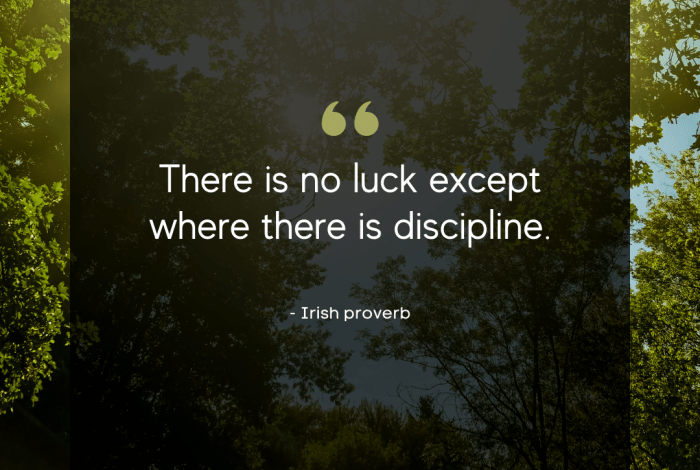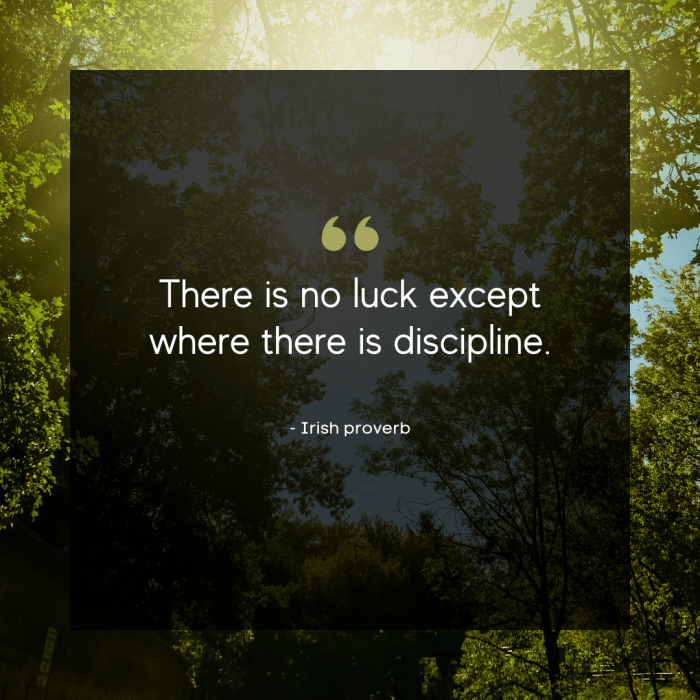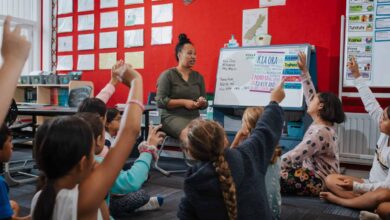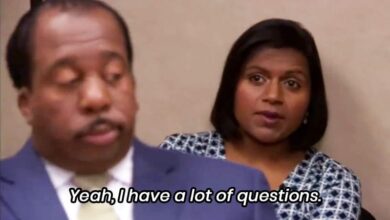
25 Rebellious Quotes to Use in Your Classroom If Your District Is Banning Everything
25 Rebellious Quotes to Use in Your Classroom If Your District Is Banning Everything: Imagine a classroom where students are encouraged to think critically, question authority, and embrace diverse perspectives. This is the reality that many educators are fighting for, even in the face of growing censorship and book banning efforts in schools across the country.
This is a call to action for teachers who refuse to let their classrooms become sterile environments devoid of intellectual curiosity and critical thought.
From the banning of classic literature to the suppression of discussions on social justice issues, schools are increasingly under pressure to conform to narrow and often politically motivated agendas. But we believe that education should be a space for exploration, challenge, and growth, where students are empowered to develop their own voices and engage with the world around them.
This article is a guide to using rebellious quotes to spark discussion and inspire students to think for themselves, even in the face of censorship.
The Rise of Censorship in Education
The current trend of book banning and censorship in schools across the US is a concerning development that threatens the core values of education. This trend, driven by a mix of political pressure and ideological agendas, seeks to restrict access to diverse perspectives and ideas, ultimately hindering students’ intellectual growth and critical thinking abilities.
Examples of Banned or Restricted Books and Topics
This trend has manifested in various forms, with specific books and topics being targeted for removal from school libraries and curriculums.
- “The Hate U Give” by Angie Thomas:This young adult novel, exploring themes of police brutality and racial injustice, has been challenged in several districts for its depiction of sensitive issues and its potential to make students feel uncomfortable.
- “To Kill a Mockingbird” by Harper Lee:This classic novel, which deals with racial prejudice and the complexities of the American South, has faced criticism for its use of racial slurs and its portrayal of black characters.
- “The Absolutely True Diary of a Part-Time Indian” by Sherman Alexie:This autobiographical novel, exploring the challenges faced by Native American youth, has been targeted for its depiction of poverty, addiction, and sexual abuse.
- “Gender Queer” by Maia Kobabe:This graphic memoir, which explores themes of gender identity and sexual orientation, has been banned in some districts for its explicit content and its perceived threat to traditional values.
- Critical Race Theory:This academic framework, which examines the role of race and racism in shaping American society, has become a target of political attacks, with some states passing laws banning its teaching in schools.
Consequences of Censorship on Students
The consequences of censorship on students are far-reaching and detrimental. By limiting access to diverse perspectives and challenging ideas, censorship stifles intellectual curiosity, critical thinking, and empathy. It creates a narrow and distorted view of the world, hindering students’ ability to engage in meaningful dialogue and grapple with complex issues.
“Censorship is the greatest enemy of education. It is the enemy of freedom. It is the enemy of truth.”
Salman Rushdie
So, you’re looking for ways to spark critical thinking and challenge the status quo in your classroom, even when your district is trying to stifle everything? Well, maybe we can learn a thing or two from Red Bull. They’re bringing the Half Court World Finals to New York City red bull brings the half court world finals to new york city , a bold move that embraces the spirit of competition and pushes boundaries.
Maybe those 25 rebellious quotes can be our own “half-court” moment, a chance to inspire our students to think differently and challenge the norm.
The Power of Rebellious Quotes
In a world where conformity often reigns supreme, rebellious quotes serve as powerful reminders of the importance of critical thinking, individual expression, and challenging the status quo. These quotes, often born from the minds of visionaries, activists, and thinkers who dared to question the established order, provide a potent antidote to intellectual complacency.
They act as catalysts for stimulating dialogue, fostering empathy, and empowering students to embrace their unique perspectives.
Freedom of Expression
Quotes that champion freedom of expression encourage students to speak their minds, even when their views are unpopular or controversial. They emphasize the importance of open dialogue and the right to dissent.
-
“If you have nothing to say, don’t say it.”
– Don’t be afraid to voice your opinions, even if they are unconventional. This quote emphasizes the value of authenticity and encourages students to share their thoughts and ideas without fear of judgment.
-
“I disapprove of what you say, but I will defend to the death your right to say it.”
– Voltaire’s famous quote highlights the importance of protecting freedom of speech, even for ideas we disagree with. It underscores the need for tolerance and respect for diverse viewpoints.
-
“The only way to have a friend is to be one.”
– Ralph Waldo Emerson’s quote emphasizes the importance of mutual respect and understanding in fostering meaningful relationships. It encourages students to be open-minded and willing to listen to others, even when they disagree.
Critical Thinking
These quotes challenge students to question assumptions, think critically, and seek out different perspectives. They emphasize the importance of independent thought and analysis.
-
“The only true wisdom is in knowing you know nothing.”
– Socrates’s famous quote encourages humility and intellectual curiosity. It reminds students that there is always more to learn and that true wisdom lies in recognizing the limits of our knowledge.
-
“To be yourself in a world that is constantly trying to make you something else is the greatest accomplishment.”
– Ralph Waldo Emerson’s quote encourages students to embrace their individuality and resist societal pressures to conform. It celebrates the power of self-expression and the importance of staying true to oneself.
-
“The greatest danger for most of us is not that our aim is too high and we miss it, but that it is too low and we reach it.”
– Michelangelo’s quote reminds students to set ambitious goals and strive for excellence. It encourages them to push their limits and not settle for mediocrity.
Social Justice
These quotes inspire students to stand up for what they believe in, fight for equality, and challenge injustice. They emphasize the importance of compassion, empathy, and social responsibility.
-
“Injustice anywhere is a threat to justice everywhere.”
It’s a tough time to be a teacher, especially when you’re facing restrictions on what you can share with your students. But even in the face of censorship, we can still inspire critical thinking and spark conversations. For example, a recent article on nigeria protests ten activists charged with treason could be a powerful starting point for discussions about the power of dissent and the importance of standing up for what you believe in.
This kind of real-world example can be a much more effective way to engage students than just reciting a list of rebellious quotes.
– Martin Luther King Jr.’s powerful quote highlights the interconnectedness of social justice and the need for solidarity in the face of oppression. It encourages students to recognize the impact of injustice on others and to actively work towards a more just and equitable world.
-
“The only thing necessary for the triumph of evil is for good men to do nothing.”
– Edmund Burke’s quote reminds students that inaction in the face of injustice is complicity. It encourages them to take a stand against wrongdoing and to actively participate in creating positive change.
-
“The time is always right to do what is right.”
– Martin Luther King Jr.’s quote emphasizes the importance of acting on one’s convictions, regardless of the circumstances. It encourages students to stand up for their beliefs and to fight for what they believe is just, even when it is difficult.
Individual Empowerment
These quotes empower students to believe in themselves, pursue their dreams, and overcome challenges. They emphasize the importance of self-belief, resilience, and the pursuit of personal growth.
Sure, let’s talk about rebellious quotes for the classroom. It’s a tough time to be a teacher, with so many restrictions being placed on what we can and cannot say. But even with those limitations, we can still inspire our students to think critically and creatively.
For example, we can discuss how the European Union’s commitment to climate neutrality is causing economic hardship in some countries, like Italy and Spain, as discussed in this recent study: italy and spain at risk austerity in climate neutrality race new stud.
By exploring these complex issues, we can empower our students to become informed and engaged citizens who can make a difference in the world. And who knows, maybe we’ll even spark some rebellious thinking along the way.
-
“The only person you are destined to become is the person you decide to be.”
– Ralph Waldo Emerson’s quote emphasizes the power of choice and personal responsibility. It encourages students to take control of their lives and to create the future they desire.
-
“The future belongs to those who believe in the beauty of their dreams.”
– Eleanor Roosevelt’s quote inspires students to dream big and to pursue their aspirations with passion and determination. It reminds them that anything is possible if they believe in themselves.
-
“You miss 100% of the shots you don’t take.”
– Wayne Gretzky’s quote encourages students to take risks and to step outside of their comfort zones. It reminds them that failure is a part of the journey and that the only way to achieve success is to try.
Using Quotes in the Classroom: 25 Rebellious Quotes To Use In Your Classroom If Your District Is Banning Everything

Rebellious quotes, though potentially controversial, can serve as powerful tools for engaging students in critical thinking, sparking debate, and fostering a culture of open dialogue within the classroom. These quotes, often challenging conventional wisdom or societal norms, can provide a unique lens through which students can examine complex issues, explore different perspectives, and develop their own informed opinions.
Using Quotes in Classroom Activities
These quotes can be incorporated into various classroom activities, fostering student engagement and critical thinking.
- Discussion Starters:Begin class sessions with a thought-provoking quote related to the day’s topic. Encourage students to share their initial reactions, interpretations, and connections to their own lives or experiences. This fosters a sense of shared exploration and encourages active participation from the outset.
- Debate Prompts:Quotes that express opposing viewpoints can serve as the foundation for engaging debates. Divide students into groups representing different perspectives and provide them with time to research, formulate arguments, and present their positions. This activity promotes critical thinking, research skills, and the ability to articulate perspectives effectively.
- Creative Writing Exercises:Quotes can inspire creative writing exercises. Students can write stories, poems, or essays that explore the meaning of the quote, its implications, or their own personal responses to its message. This encourages students to delve deeper into the quote’s meaning and express their understanding through creative expression.
- Journaling Prompts:Encourage students to reflect on quotes in their personal journals. They can write about how the quote resonates with them, how it challenges their thinking, or how it connects to their own experiences. Journaling provides a space for individual reflection and self-discovery.
Designing a Lesson Plan
A lesson plan incorporating rebellious quotes could follow this structure:
- Introduction:Begin by introducing the theme or topic of the lesson. Provide context for the rebellious quotes that will be used, explaining their historical significance or relevance to the subject matter.
- Quote Presentation:Present a series of quotes related to the lesson’s theme. Allow students to read the quotes individually or as a class, and encourage them to discuss initial reactions and interpretations.
- Discussion and Debate:Facilitate a discussion about the quotes. Encourage students to share their perspectives, connect the quotes to real-world issues, and consider the implications of the ideas presented. Divide students into groups for debates if appropriate, focusing on the different perspectives presented by the quotes.
- Creative Writing Exercise:Assign a creative writing activity based on the quotes. Students can write stories, poems, or essays that explore the themes presented by the quotes, drawing on their own experiences and interpretations.
- Reflection and Conclusion:Encourage students to reflect on the lesson and the quotes. Ask them to consider how the quotes have challenged their thinking, expanded their perspectives, or inspired new ideas. Conclude the lesson by summarizing the key takeaways and emphasizing the importance of critical thinking and open dialogue.
Fostering a Culture of Open Dialogue and Critical Thinking
Rebellious quotes can serve as catalysts for open dialogue and critical thinking within the classroom.
- Challenging Assumptions:Quotes that challenge conventional wisdom or societal norms can encourage students to question their own assumptions and explore alternative perspectives. This process of critical examination can lead to a deeper understanding of complex issues and a more nuanced worldview.
- Encouraging Diverse Perspectives:By presenting quotes from a variety of sources and viewpoints, teachers can create an environment where students feel comfortable expressing their own ideas, even if they differ from the majority opinion. This fosters a culture of respect for diverse perspectives and encourages open dialogue.
- Promoting Empathy and Understanding:Quotes that address social justice issues or highlight the experiences of marginalized groups can foster empathy and understanding among students. By exposing students to different perspectives and experiences, these quotes can help them develop a more compassionate and inclusive worldview.
The Importance of Open Dialogue
Open dialogue is the lifeblood of a vibrant and intellectually stimulating classroom. It creates a space where students feel safe to express themselves, challenge established norms, and engage in critical thinking. This section explores the crucial role of open dialogue in fostering a safe and inclusive learning environment.
Creating a Safe and Inclusive Environment, 25 rebellious quotes to use in your classroom if your district is banning everything
Open dialogue is essential for building a safe and inclusive classroom where all students feel valued and respected. When students feel comfortable sharing their perspectives, they are more likely to engage in meaningful discussions, learn from each other, and develop empathy for diverse viewpoints.
A classroom that encourages open dialogue fosters a sense of belonging and helps students feel empowered to contribute to their learning community.
Empowering Student Voices
Creating a classroom where students feel empowered to express their opinions and challenge established norms is crucial for intellectual growth. Open dialogue encourages students to think critically, analyze information, and develop their own perspectives. When students are given the opportunity to express their thoughts and engage in debate, they learn to articulate their ideas effectively, listen attentively to others, and engage in respectful discourse.
Facilitating Open Dialogue
Facilitating open dialogue requires a conscious effort to create a welcoming and inclusive environment. Here are some strategies for ensuring that all voices are heard and respected:
- Establish clear guidelines for respectful communication.
- Create a safe space for students to share their perspectives without fear of judgment.
- Use a variety of discussion formats to encourage participation from all students.
- Model respectful communication and active listening.
- Provide opportunities for students to reflect on their own biases and perspectives.
The Role of Educators in Challenging Censorship
Educators stand at the forefront of promoting intellectual freedom and challenging censorship in our classrooms. They are entrusted with nurturing young minds, fostering critical thinking, and preparing students for a world where diverse perspectives and open dialogue are essential.
Resources and Strategies for Advocating for Students’ Right to Access Diverse Perspectives
Educators play a vital role in ensuring students have access to a wide range of ideas and perspectives. They can utilize various resources and strategies to advocate for intellectual freedom and challenge censorship:
- Professional Organizations:Joining organizations like the National Education Association (NEA) and the American Library Association (ALA) provides educators with a platform to connect with like-minded colleagues, access resources, and engage in advocacy efforts. These organizations offer guidance, support, and legal resources to educators facing censorship challenges.
- Legal Resources:Educators should familiarize themselves with relevant laws and legal precedents regarding intellectual freedom and censorship in education. Organizations like the ACLU and the SPLC provide valuable resources and legal expertise to educators facing censorship challenges.
- Community Engagement:Educators can build partnerships with parents, community members, and local organizations to advocate for intellectual freedom. Engaging with the community can help raise awareness about censorship issues and build support for diverse perspectives in schools.
- Curriculum Development:Educators can develop and implement curriculum that challenges censorship and promotes critical thinking. This includes incorporating diverse voices, perspectives, and historical events that have been subject to censorship.
- Open Dialogue and Discussion:Fostering open dialogue and discussion in the classroom allows students to explore diverse viewpoints, engage in critical thinking, and develop their own informed opinions. Creating a safe and inclusive environment where students feel comfortable expressing their ideas is crucial.
Building a Network of Support Among Educators
Educators who are committed to fostering critical thinking and open dialogue in their classrooms can build a network of support among colleagues. This network can provide a space for sharing resources, strategies, and experiences in navigating censorship challenges.
- Collaborative Planning:Educators can collaborate with colleagues to develop curriculum and teaching strategies that address censorship issues and promote intellectual freedom.
- Mentorship and Support:Experienced educators can mentor newer teachers, providing guidance and support in navigating censorship challenges and advocating for students’ rights.
- Professional Development:Participating in professional development workshops and conferences focused on intellectual freedom and censorship can equip educators with the knowledge and skills to effectively challenge censorship in their classrooms.
- Advocacy Groups:Educators can form advocacy groups within their schools or districts to address censorship concerns and advocate for policies that support intellectual freedom.






